Why Should I Use Ubbersuggest?
Ubersuggest is an awesome, free SEO tool that specializes in generating new keyword ideas. Originally purposed as a tool that scraped Google Suggest terms, Ubersuggest was acquired by Neil Patel who has since significantly expanded the tool’s features.
How to use Ubbersuggest to perform keyword research
Step 1: Create an account
Once you are logged in go to Keywords then keyword Ideas.
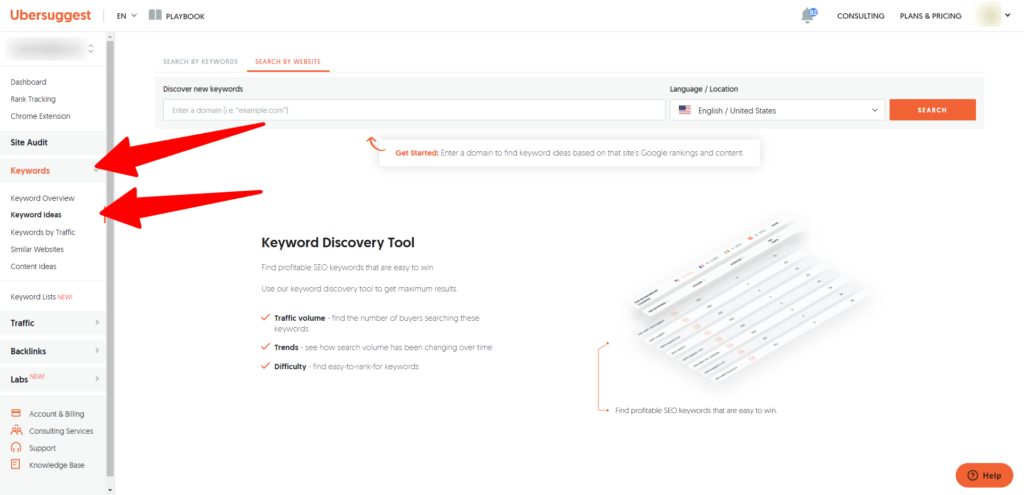
Step 2: Search
There are two ways to find keywords with Ubbersuggest:
“Search by Keywords”: These terms (for instance, “Fitness Gym” or “Japanese Restaurant”) describe your business niche. By doing this it gives you an access to Google’s proprietary keyword database for many sectors.
“Search by Website”: To find keywords, you can use the domain of your own website or the website of a rival.
Click “Search” after entering your information.
The Keywords Results Page will appear after that.
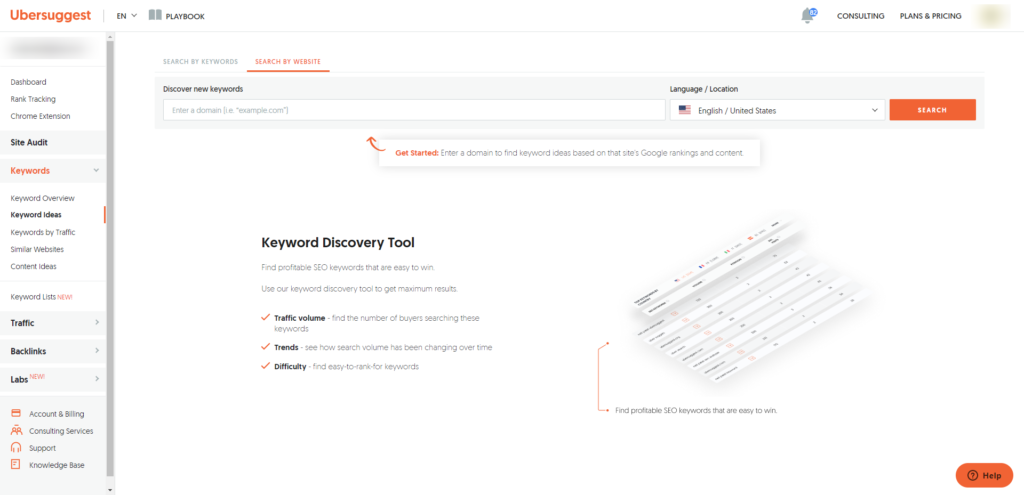
Step 3: Sort and Filter
Next step is to narrow the list of keywords to the ones that will work best for you.
You can access the “Keywords Ideas” using one of the two tools mentioned earlier.
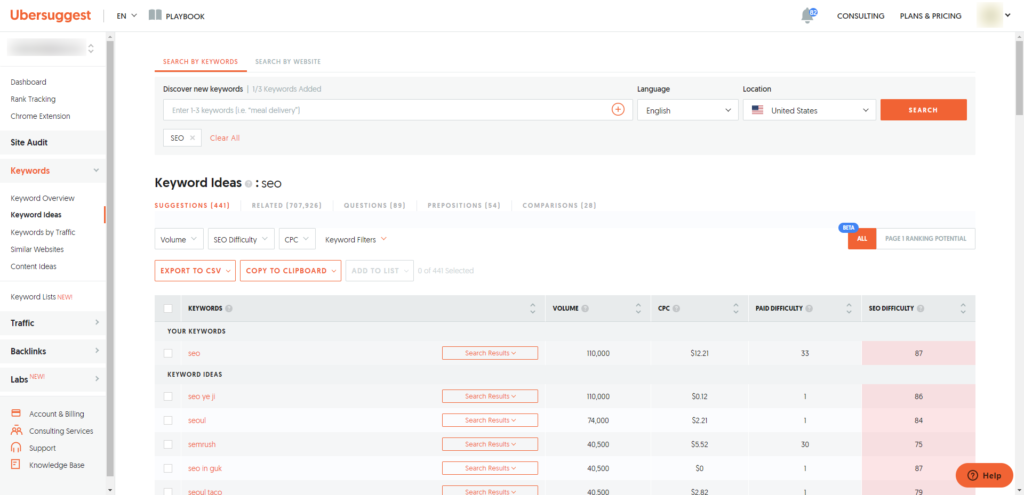
At the top of the page, you’ll see four targeting options: Locations, Language, Search Networks and Date range.

“Locations”
This is the country (or countries) that you are targetting.
“Language”
This is the language of the keywords you will be searching for.

A great feature of Keyword Ideas that many people don’t seem to be using but probably should is different keyword types. Ubersuggest presents you with a list of keyword ideas by default.
These recommendations are excellent if you are already set on covering a particular subject. However, it’s not very useful for coming up with brand-new keyword and content suggestions. This is due to the fact that these terms closely resemble the seed keyword you typed into the Ubersuggest home screen.
However, the great thing about Ubersuggest’s keyword tool is that you can use it to produce a variety of keywords, such as:
Related: Although they might differ a bit from the same subject as your seed keyword, these keywords are associated with it. For instance, one of the Related suggestions when I typed “SEO” was “Small SEO Tools.”

Questions: Keywords that are in the form of a question. For example, if you try “SEO”, one of the question keywords suggested is: “what is seo marketing”.

Prepositions: Preposition keywords combine two concepts that are closely connected. For instance, “SEO with Google” is a prepositional keyword for the term “SEO”.

Comparisons: This may be the tool’s best feature. A list of “versus,” “or,” or “and” terms is generated by this feature. Basically, search terms used to compare two items.

Ubbersuggest provides 4 ways to filter for keyword ideas:
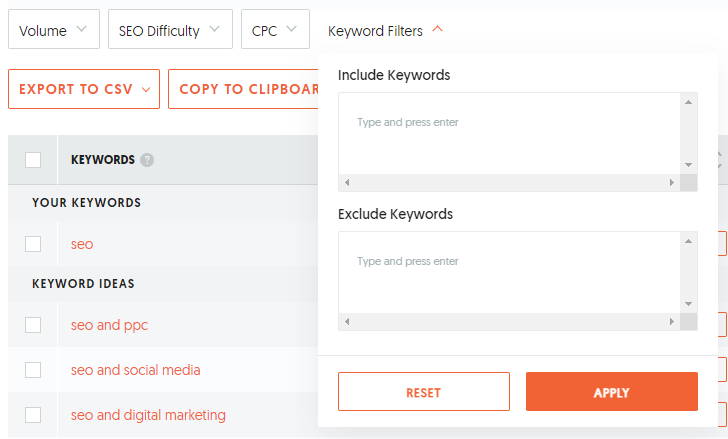
Search Volume: Filter keyword ideas based on a range of different search volumes.
SEO Difficulty: Filter by Easy, Medium, or Hard settings.
CPC: Filter by how much people spent on a particular keyword.
Keyword Filter: Include keywords that you are interested or exclude keywords that you are not.
Step #4: Export
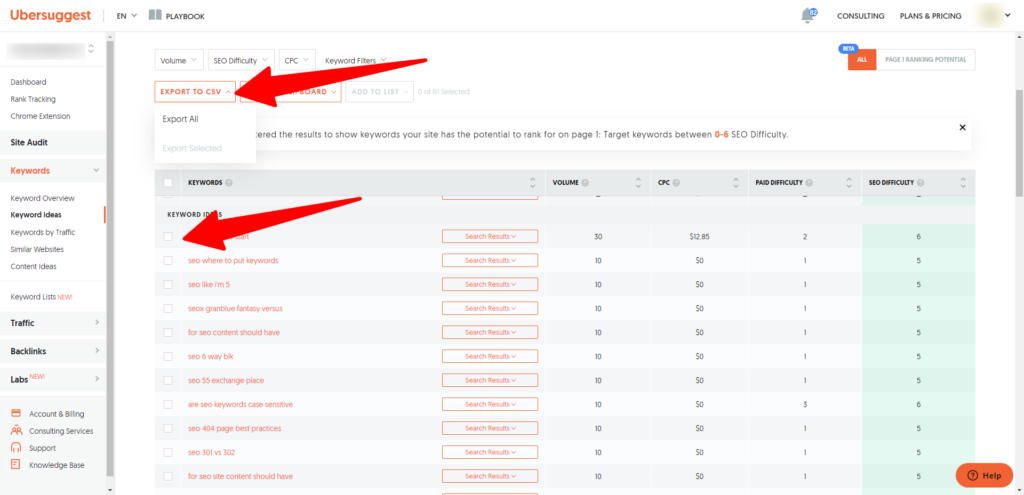
You can then export all the keywords or just export selected keywords.
SEO is a process, it’s a skill that takes a lot of time and effort, but it is well worth the effort. It’s a skill that can be learned and one of those skills is keyword planning with Ubbersuggest. Get started today. If you have some questions on what you see here, or you want some help, visit us at www.aardvarkmg.com
